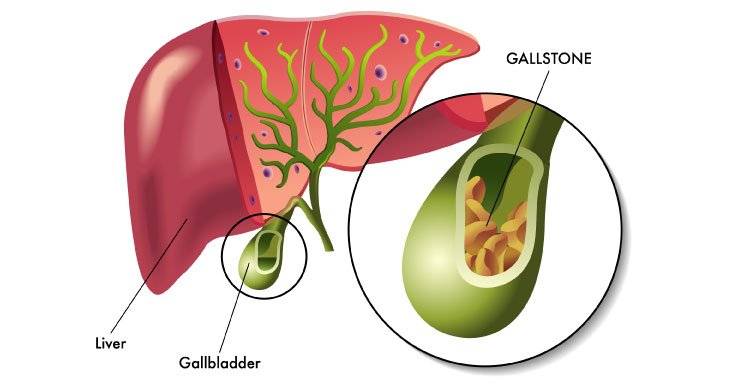Gallstones are small, hard deposits that form in the gallbladder, a small organ located beneath the liver. Gallstones can cause pain and discomfort, and in some cases, they can lead to serious complications, such as inflammation of the pancreas. Here are some tips on how to prevent gallstones.
Maintain a healthy weight
Being overweight or obese is a risk factor for gallstones. Maintaining a healthy weight through a balanced diet and regular exercise can help reduce the risk of gallstones. Aim to eat a diet that is low in saturated and trans fats and high in fruits, vegetables, and whole grains.
Stay hydrated
Drinking plenty of water and staying hydrated can help prevent the bile in the gallbladder from becoming too concentrated, which can lead to the formation of gallstones. Aim to drink at least 8-10 glasses of water per day, and avoid sugary or caffeinated drinks.
Eat a high-fiber diet
Foods that are high in fiber, such as fruits, vegetables, and whole grains, can help reduce the risk of gallstones. High-fiber foods help regulate the digestive system and prevent the build-up of cholesterol in the gallbladder, which can lead to the formation of gallstones.
Limit Alcohol Consumption
Excessive alcohol consumption can increase the risk of gallstones. It’s important to limit alcohol intake to no more than one drink per day for women and two drinks per day for men.
Exercise regularly
Regular physical activity can help prevent and manage gallstones. Exercise can help improve digestion, reduce inflammation, and promote weight loss, which can all help reduce the risk of gallstones. Aim to get at least 30 minutes of moderate exercise, such as brisk walking or cycling, on most days of the week.
Avoid Crash Diets
Crash diets or rapid weight loss can increase the risk of gallstones. It’s important to lose weight slowly and steadily through a healthy diet and regular exercise to reduce the risk of gallstones.
Talk to your Doctor:
If you are at risk of gallstones, it’s important to talk to your doctor about the best prevention strategies for your individual needs. Your doctor may recommend regular check-ups or screening tests to monitor your gallbladder health.
In conclusion, gallstones can be prevented by maintaining a healthy weight, staying hydrated, eating a high-fiber diet, limiting alcohol consumption, exercising regularly, avoiding crash diets, and talking to your doctor. By following these tips, you can reduce your risk of gallstones and maintain good overall health.

